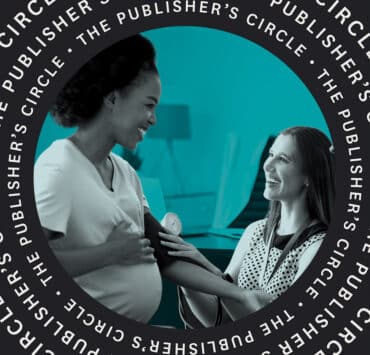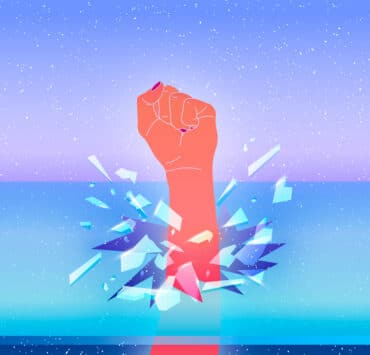|
Getting your Trinity Audio player ready...
|
This week, NextGen to Watch is spotlighting Isabella DeClue, a software engineer at Microsoft who works on AI initiatives in the search, assistant, and intelligence division. The Washington, DC, native attended the University of Chicago, and now focuses on enhancing Microsoft’s AI Copilot.
Who inspired you the most in your life growing up?
My mother has always been the greatest inspiration in both my personal and professional life. As an Argentine immigrant working in a science, technology, engineering, and mathematics (STEM) discipline, she met countless challenges and weathered hardship throughout her career. Her determination and relentless drive to succeed despite these circumstances have provided an incredible example for me.
However, her most admirable qualities are her compassion and unwavering willingness to assist others. She is the first person to volunteer to help friends, colleagues, and family come up with creative solutions to whatever dilemma they may be facing. This attitude contributed to the personal fulfilment and professional success she’s achieved in the twenty-five years since she immigrated from Argentina.
Another impactful lesson I’ve learned from her is the importance of staying connected to my cultural roots. Despite growing up over five thousand miles away from my mother’s home country, she always made sacrifices to ensure that I would keep strong ties to Argentine culture. Every year, she saved up to purchase the round trip airfare to Argentina during my summer breaks from school. Every weekend, she drilled me on Spanish language grammar and vocabulary, using copies of her old textbooks.
Our household was filled with the sounds of Argentine music (everything from Tango to Rock Nacional) and the smell of freshly baked empanadas. My cultural heritage represents a fundamental aspect of my identity, and I’m very grateful for the early encouragement I had to embrace it with pride.
Whose career really inspires you?
Cathy O’Neil’s career has inspired me since I read her book, Weapons of Math Destruction (2016), in 2019. Weapons of Math Destruction describes the destructive effects that opaque mathematical models can have when used to describe abstract qualities, such as teacher performance or individual criminal risk. She emphasizes how much bias can be embedded into algorithms assumed to be purely objective.
Before publishing this book, O’Neil received a PhD in mathematics and worked as a data scientist in the financial industry. She used these experiences to inform her perspective and continues to advocate for algorithmic justice and responsible AI. She has also founded her own business where algorithms are audited to evaluate their risk, privacy, and fairness. I admire how she aligned her educational and professional background with a cause that she’s passionate about—and is deeply relevant today.
What lesson did you learn early in your career that still serves you today?
A lesson I learned during my first summer internship is to constantly advocate for your work and ensure it receives visibility. It can feel intimidating to reach out to colleagues you don’t work with directly, especially as an intern or entry-level career professional. However, consistently budgeting time for networking allowed me to discover more applications for the project I had been working on, significantly increasing its potential for impact.
I also signed up for every opportunity provided for interns to showcase our work. This led to many new, meaningful professional connections with colleagues interested in my project. At the end of the summer, I was told that this mindset was one of the deciding factors in my receiving a full-time job offer, so I continue to embrace and apply that mentality now.
What are some of the biggest challenges you see for Latino professionals early in their careers?
Lack of representation in technical fields is currently a big challenge for Latino professionals building their careers in these industries. In fact, the National Science Foundation estimates that Latinos make up only 15 percent of the science and engineering workforce, with the figure dropping to 2.3 percent for Latinas. While attending university, I was usually one of a few women—and the only Latina—in my statistics and computer science courses. Speaking to other Latinas working in technology has revealed that this is not an uncommon experience, both at the university level and throughout careers.
Underrepresentation often results in limited access to key informal networks, such as study groups or hidden job markets, which are highly correlated with success in academic and professional environments. Organizations such as Latinas in Tech, the Hispanic Technology Executive Council (HITEC), and SOMOS.tech aim to address this challenge by building community and providing the resources and opportunities needed to succeed in the technology industry. I’ve attended events hosted by all three of these nonprofits and highly recommend checking them out to anyone looking for mentorship or support in the early stages of their career.
What podcast or lifehack can you not live without?
A podcast I cannot live without is The Happiness Lab with Dr. Laurie Santos. I recommend it to anyone looking for evidence-based psychological strategies to lead a more purposeful and positive life. Santos is professor of Yale’s most popular course, “The Science of Well-Being,” and integrates teachings from the course, contemporary research, and insights from ancient philosophers into the podcast.
What is part of your daily routine that you look forward to every day?
I make time to go for a walk outside every day, no matter how the weather is. Having faced both Chicago winters and Seattle downpours, I’ve learned how to manage harsh conditions. Working in tech, I spend a large part of my day indoors on a computer, and I’ve noticed a decline in my overall well-being on the days when I don’t spend enough time away from screens. I also recently decided to leave my headphones behind during these walks. Since I don’t keep a daily journal, I use this time to reflect on my daily and weekly objectives, which I wouldn’t be able to do effectively if I were distracted by music or a podcast.
What is one non-work-related goal that you would like to achieve in the next five years?
A non-work-related goal I’m working toward within the next five years is learning three new styles of dance! I have a background in classical ballet and dance is one of my favorite ways to relieve stress. It also challenges me in a completely different way than my daily professional responsibilities do. The diversity of dance styles originating from Latin America is amazing: samba, bachata, tango, reggaeton, and merengue, among others. I’ve already taken classes in a couple of these styles, and I can’t wait to explore more in the future!
Your theme song
I’ve been listening to a lot of music by singer-songwriter RAYE since seeing her concert last October! I love the message about valuing yourself and your time in her song, “Worth It.”

